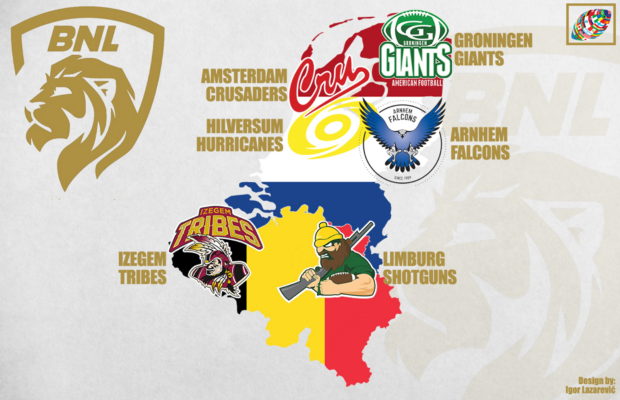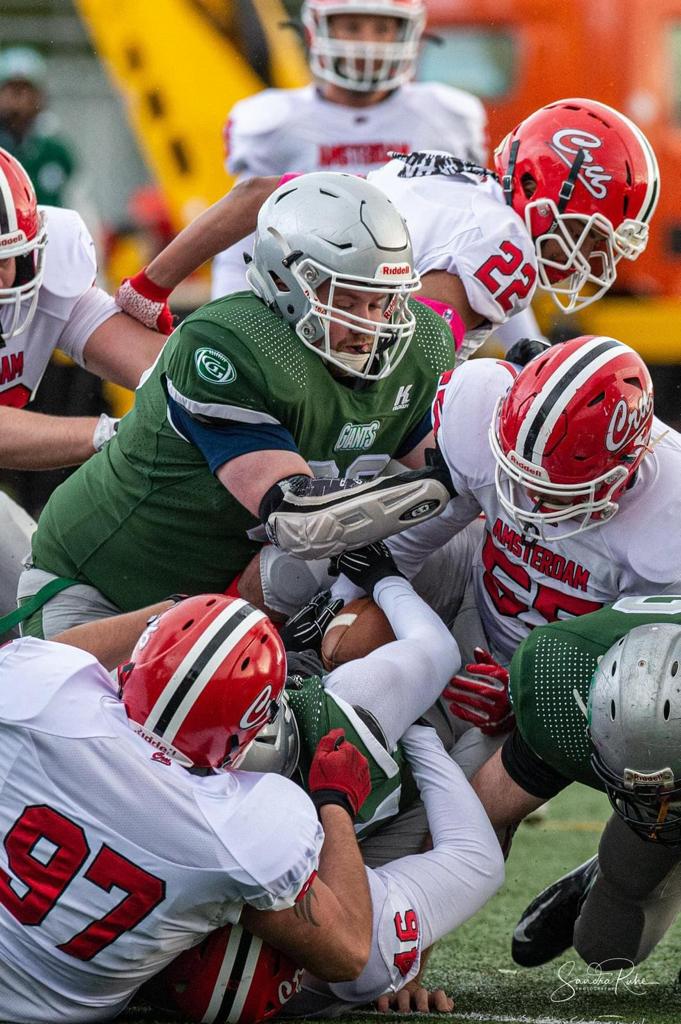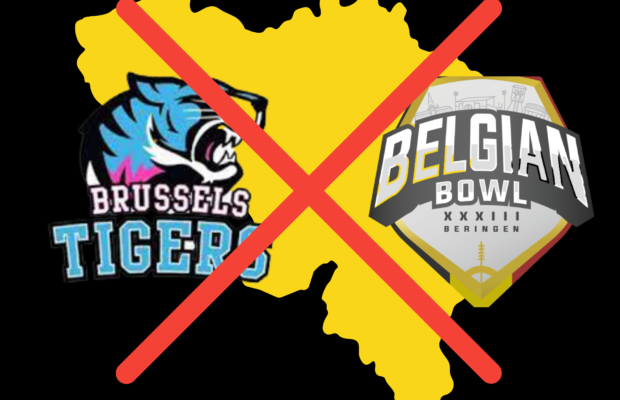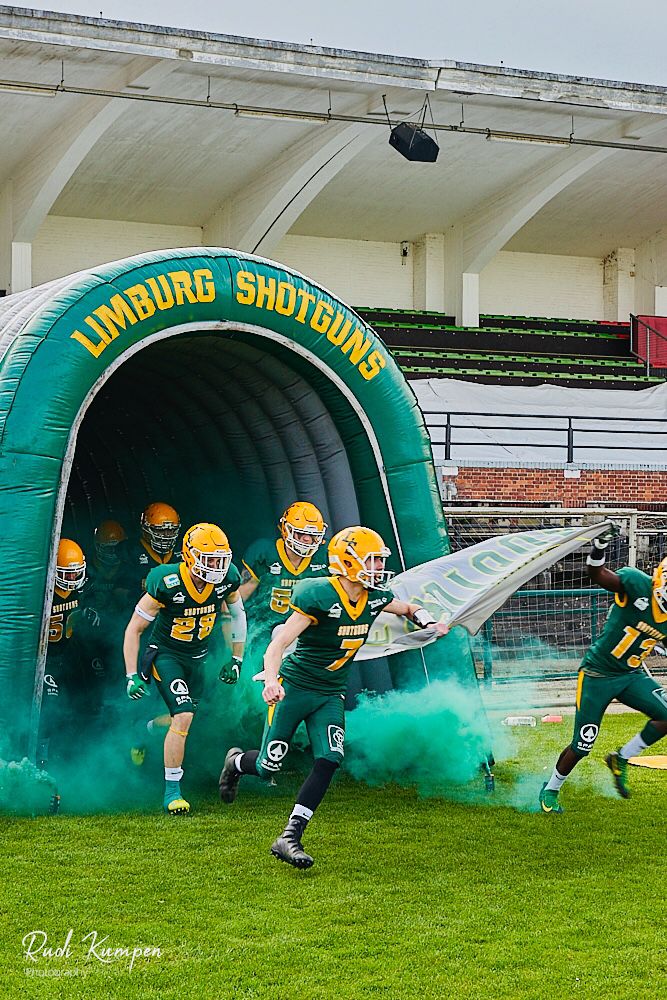BNL: Groundbreaking competition aimed at growing the sport in Belgium and the Netherlands

The football communities in Belgian and the Netherlands are undergoing an upheaval this spring with the formation of a new, groundbreaking international competition.
“To create progress, you have to go through some turbulence”- René Barens
The Belgian–Netherlands competition, or BNL, plans to kick off its inaugural season this spring. The new football venture will consist of six total teams including four Dutch and two Belgian clubs. The Dutch capital city powerhouse Amsterdam Crusaders will be joined by fellow Dutch clubs the Hilversum Hurricanes, Groningen Giants, and Arnhem Falcons. Representing Belgium will be the Limburg Shotguns and Izegem Tribes. The competition is planned to run from March until June or early July.
BNL Commissioner Christophe Olenaed:
“Our mission is to provide a qualitative and marketable football experience for all involved stakeholders. We truly believe that an intense spring season with a proper offseason will optimize on and off field performance. We aim to enhance the American football experience for fans, players, coaches, and all other parties.”
The new competition is the brainchild of long-time Amsterdam Crusader, René Barens. The proud Crusader club has a long history of blazing its own path. Whether through dominating domestic play, entering a completely international schedule, or taking on some of Europe’s best clubs, the ambitious Amsterdam club is known to push the envelope. Unsurprisingly, friction began to grow further between the Crusaders and the Dutch federation (AFBN) once again in early 2020. After the outbreak of the COVID-19 pandemic, a fundamental shift in the AFBN’s schedule created a large three to four-week gap between games. The new schedule produced a season that drags on for more than six months.

Groningen Giants vs Amsterdam Crusaders Photo: Sandra Ruhe
“The league had been pushing a longer season for some time now. The logistics of spreading out competitions between the Dutch Lions, flag football, youth competitions, and the men’s league are more manageable over an eight or nine-month period.” Barens added “There are a lot of teams in the league that were happy with the long season because they are playing the game at a hobby level.”
While some clubs embraced the new schedule, others such as the Crusaders were adamantly against the elongated season, arguing that it is a disservice to the players and coaches striving to play the game at the highest level available.
“It’s just that we as Crusaders don’t want an elongated season. It’s simply not our philosophy around the game. We want our players to prepare themselves in an off-season while the organization prepares itself for another season. We all get a break from football. But when we come back we have an intense four to five-month season. We want a normal season.”
Barens gathered like-minded coaches and team administrators to discuss their options. However, in 2020 no decisions were made, and the Crusaders reluctantly agreed to participate in the AFBN’s planned 2021-2022. Behind the scenes, the Crusaders were already working on their next move. In July of 2020, Baren’s also reached out to Belgian teams looking for new competition. Now, a year and a half later, two Belgian teams and four Dutch teams including the trailblazing Crusaders, are working together in the ground-breaking BNL competition.
On the Belgian side, the Belgian American Football League (BAFL) is coming off a disaster of a season. Following COVID cancelations and postponements, teams were finally able to return to the field this fall. The excitement of the comeback season soured quickly as the controversy around ambulances and player safety led to the boycotting and eventual cancellation of the championship “Belgian Bowl”.
The Limburg Shotguns were awaiting the Brussels Tigers in the championship before the capital city club effectively ended the season, leaving the league without a true champion. After the disappointing end of the season for the league, both the Limburg Shotguns and Izegem Tribes jumped at the chance to be a part of a new competition.
Barens explains how he recruited Belgian teams to join the BNL:
“After the chaos of the Belgian Bowl, I reached out in our WhatsApp group about a new international competition, then the Flemish teams said let’s talk.”
Limburg and Izegem will not play in the BAFL this season and will instead be focusing on the BNL competition and a few exhibition games.
Limburg Shotguns general manager Michel Eeman explains the decision to join the BNL:
“We want to use the BNL as the premier competition to help raise the level in both countries. We were inspired by the ELF’s impressive marketing and are hoping to create a social media and livestreaming presence to grow the game in our area.
Limburg Shotguns Photo: Rudi Kampen
While the Limburg Shotguns were a powerful team this last season in Belgium, it’s difficult to imagine the growth of the game in Belgium without the two capital city teams and traditional powerhouses, the Brussels Black Angels and Brussels Tigers. Eeman made it clear that the BNL hopes to add those talented teams in the future and raise the level of the competition.
All six teams in the BNL will still pay licensing fees to their respective federations. BNL officials made it clear that they want to work with their country’s football federations, not against them. The BNL is eager to engage its audience with a detailed social media plan, livestreaming, and a heavily promoted “game of the week”. Their hope is that the BNL potentially becomes the best competition in the area, thus letting federations focus on vital points of emphasis such as national team competition, youth football, the continued success of the men’s and women’s leagues at all levels.
BNL commissioner Christophe Olenaed on how they plan to work with the BAFL and AFBN:
“BNL will be able to provide a platform for those clubs that are ready for the next level in terms of sport level, accommodations, etc. This will in turn enable the national federations to focus on the grassrooted growth of the sport. Focus on the basics, startup, exposure of the sport on all levels. Focus on coaching levels and refs. BNL will be a level everyone can work towards. We want to create a better end product in terms of professionalism.”

